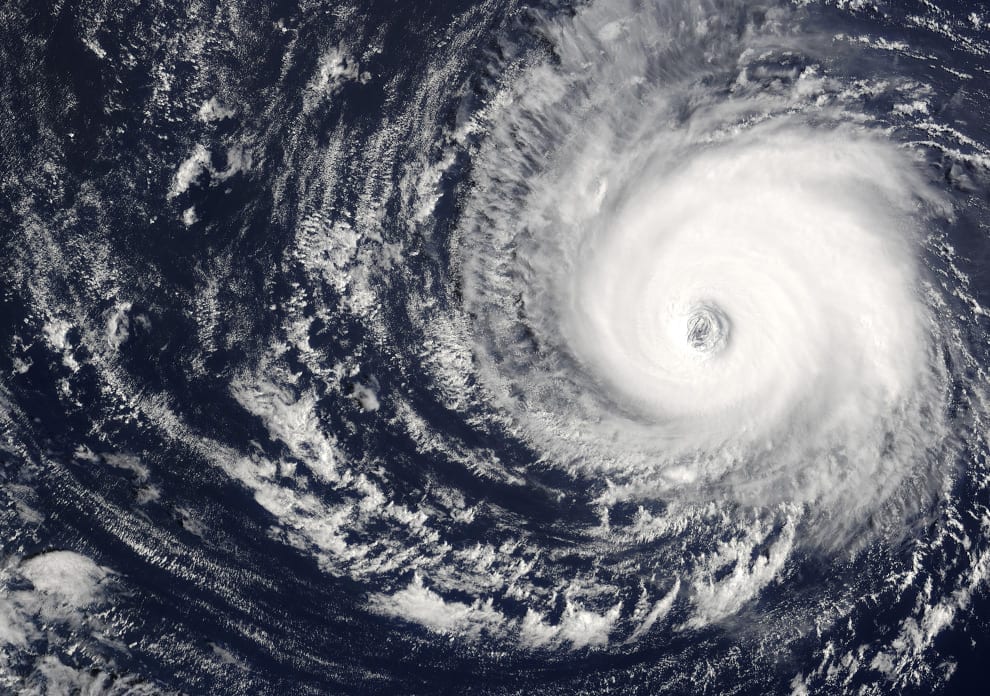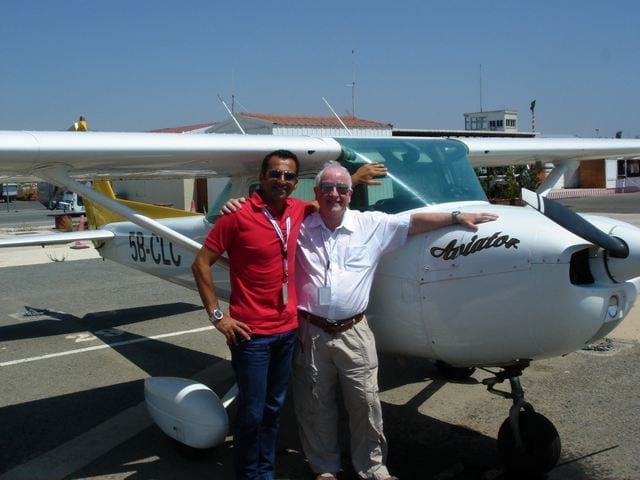Governments use power and political manoeuvring for the benefit of the country that include bilateral agreements and trade agreements for many products.
A government “Aviation Product” is high on the list of “protected species” and in the corridors of power many aviation decisions are made that do not normally affect those of us on the flight deck responsible for a successful flight.
But sometimes they do.
Such was the case of the Rarotongan Voters Project, where not only two separate governments intervened mid-flight but the effects of a King and a powerful Premier’s decision confirmed to me that politics are very much a part of aviation but are normally confined to back door negotiations. That proved to be not so!
This story is repeated in two almost identical exercises but separated by a period of four years…
The story begins during the early development of a small airline that grew from one F-28 operating from Melbourne to many airports of the South Pacific region. Capable of operating from unprepared airstrips, the sixty seat F-28 was blessed with good flexibility with its low pressure tyres, gravel equipment and a comfortable cruise speed of 420 knots.
Over 10 years, the operation grew to a fleet of B-737’s and B-727’s and like the F-28 these aircraft were also certified to operate from coral island and gravel airstrips.
In 1974 the Cook Island government held an election in the capital, Rarotonga. The law did not permit absentee votes, which meant islanders wishing to vote and living overseas in New Zealand had no choice but to be on the island on polling day. It was anticipated the election result was going to be a close call and the Opposition Party needed every overseas voter to be on the island – and on time. The result was our airline was chartered to fly opposition voters from Auckland to Rarotonga.
A schedule was produced that would have been easy for an aircraft with a greater range but was really stretching the F-28. It needed careful flight planning and two refuelling stops because the voters had to be at Rarotonga before polling closed at 2000 hours local time.
The planned route started at Melbourne with a positioning flight to Auckland. After picking up a full complement of voters at Auckland the flight would proceed to Tonga for refuelling then on to Rarotonga (see the map below). A three pilot crew was needed to cover the extended duty time involved.
It was always a happy occasion flying into and out of the smaller Pacific airports. We were always greeted with happy people, wide smiles, and leis often given to arriving passengers and songs from the waving crowds.
And this was no exception except in Auckland, we, the crew, were presented with frangipani leis and applauded as we boarded the aircraft for the Tonga sector.
Twenty minutes after take off we were cruising at 27,000 feet with good weather ahead.
The group leader had earlier requested the jump seat for take off and as the finance for the trip had been raised by his political organisation, he was made welcome.
We were half way to Tonga when Nadi (Fiji) Air Traffic Control called to say they had a priority message from the Director of Civil Aviation at Tonga advising fuel for our aircraft was not available. This was a potentially serious turn of events and quite unexpected.
We immediately reduced speed to Long Range Cruise to save fuel and received approval from Nadi to climb to a higher altitude. During our operations around the South Pacific we often had Heads of State on board who would request changes to our routing or destination but these were normally done with plenty of notice before take off. Obviously this wasn’t the case today.
David, the group leader, was asked to the flight deck and to our surprise he said the King of Tonga was behind this astonishing news of the lack of fuel at Tonga. It seemed the King was a friend of the Prime Minister of the Cook Islands, Sir Albert Henry, and Sir Albert was trying to prevent the voters in our aircraft from getting to Rarotonga to take part in the voting.
From our present position between Auckland and Tonga there was no way we had sufficient fuel to bypass Tonga and fly direct to Rarotonga. The available options were to divert to Western Samoa or Fiji where our company agents could arrange a quick refuelling. We decided Nadi was the best bet and soon after, ATC cleared us direct to Nadi, and to save time we increased speed and descended to a lower level.
Time was getting critical so I suggested to David we should alert the passengers in case we could not make the vote in time. He replied as the passengers were having a happy time down the back it seemed a pity to concern them unnecessarily when we might yet make it on time. He had a point there.
Then came another surprising turn of events when Nadi ATC came on the air and said the Director of Civil Aviation at Tonga had changed his mind, and fuel at Tonga was now indeed available.
David was cautious about this latest news saying he sincerely hoped the new message did not hold a political trap. In fact his suspicions proved correct and the worst was yet to come.
We landed at Tonga and looked for the refueller and as the passengers disembarked for a quick break a jeep arrived and a smiling Tongan greeted us enthusiastically.
“Welcome to our island paradise” he said. “I have a message from the Director of Civil Aviation that he apologises for the delay but we cannot get you refuelled for three to four hours but as soon as the truck gets here we will certainly refuel your aircraft.”
David rolled his eyes and in less than a gentle manner demanded a telephone and stated he would now make a formal complaint to the Director. There was no way we could afford to wait three or four hours and still make the polling booths at Rarotonga in time.
I understood David’s frustration but I could also foresee addional problems coming up.
If we were delayed at Tonga – and even if we made the voting time – we would need runway lights at Tonga for the return flight to Auckland where additional voters were waiting to get back to Rarotonga. I chatted to our welcoming Tongan and he confirmed all would be well and “yes, the lights were available and yes sir, the lights are always serviceable.”
By now David had made his phone call to the Tonga DCA and briefed us that he had warned serious legal steps would be taken against the Kingdom of Tonga and personally challenged the Director by threatening some “personal attention.”
All we could do was wait and see what would happen next. To our relief the fuel truck arrived an hour later and after hastily refuelling we were airborne and on our way at maximum speed.
By now night had fallen as we monitored the radar for any thunderstorms but fortunately, the weather proved fine and as soon as we landed at Rarotonga the passengers rushed from the aircraft to waiting buses and into town to vote.
By the time refuelling was completed the voters were back on board singing and laughing as islanders do when they are happy and celebrating. Then it happened. Yet another surprise.
About to start engines, we received a call from Rarotonga Flight Service that a message had been received from the Tonga Director of Civil Aviation that the runway lights would not be available at Tonga.
I was aghast at the blatant political interference to our flight. The attempts at corrupting the voting system was obvious to us but later I was sure spin would be applied should there be an inquiry. Naturally it would be blamed on unserviceable lights and poor communications but now was not the time for recriminations. We had to get going quickly.
Another re-plan was necessary with no alternative but to over-fly Tonga and return to Auckland via Nadi. We called back the refueller and topped up to full tanks. The sector started with much joyful singing from the cabin but it soon subsided as the first passenger fell asleep as we flew through the night.
We lost time at our first check point and re-planned, finding we could continue past our Point of No Return with all fuel reserves intact. The remainder of the flight to Nadi and Auckland was routine, however we had become so politically involved in the Opposition’s plan to regain government in the Cook Islands that we waited with mounting interest for the election result.
It came… Sir Albert Henry was returned to power and all the efforts of the opposition had been in vain.
But the story does not end there.
Four years later, now equipped with B-727’s and having no range or refuelling stops enroute, we were again chartered to repeat the exercise. It was routine in all respects with the only difference to our earlier one was that Sir Albert Henry chartered an Ansett B-727 from Melbourne and flew in his own supporters.
To pay for this charter I was subsequently briefed Sir Albert personally delivered the fee in cash – much to the surprise of the Australian customs officials who discovered the cash on his arrival in Melbourne.
But it was legal and so the government charter was paid correctly. That did not seem significant at the time but later it was an act that had profound repercussions.
Again we waited for the results of the Cook Island elections feeling sure that, with such determination, the opposition would now prevail.
But… again they had lost.
So much for democracy I thought and I subsequently came to believe that democracy was great provided one had the funds to support it… and they were used ethically and for the purposes for which they were given.
But Karma has a way of delivering justice and it was manifested in a subsequent court action brought by the Cook Island Opposition.
It seems the funds used to charter the government voters came from foreign aid given by Australia and/or New Zealand. It was illegal under the terms of the aid agreement to use funds for any other purpose than aid – definitely not for political advantage for any party.
And so justice was finally done. The court declared Sir Albert Henry’s party had been returned to power illegally and the Opposition, who had tried so hard and had conducted their affairs honestly, came to power… but not due to the voters but through a judicial system designed to protect the very things we should treasure. “Freedom,” albeit with the aid of some dedicated aviation helpers.
- A brief stop in Manila? An airline flight goes awry - July 9, 2020
- How to unload a Boeing – by hand - April 24, 2019
- Not your typical bombing run - November 1, 2018


















Fantastic story Maurie, thanks for sharing!
What year(s) were these flights/elections?
Thanks Peter, The events as described were those that has underscored my personal attitude to always play the “What-If” game. I must admit though, I had not considered the political scene before.
My memory is not as sharp as it used to be but checking my log books I believe the first trip was done December 1, 1974; the second 30/31 Mar 1978